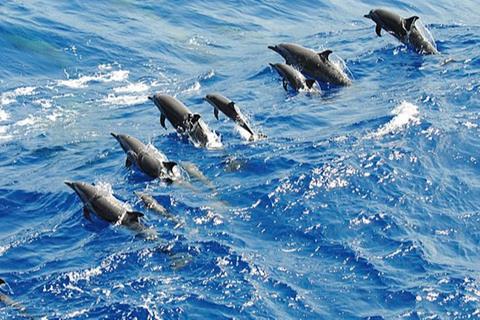A recent study published in Water Biology and Security highlighted the significant role of food source variations in shaping the gut microbiome of spotted dolphins, even when they inhabit similar environments.

“The gut microbiome serves crucial functions in food digestion and acts as a secondary immune system for the host. Despite increasing recognition of their importance, our understanding of marine mammal gut microbiomes remains limited due to challenges in sampling,” shares corresponding author Peijun Zhang, a professor at the Institute of Deep-sea Science and Engineering, Chinese Academy of Sciences.
READ MORE: Researchers carry out first peer-reviewed study of fecal microbiota transplants in dolphins
READ MORE: Researcher to study role of tiny diatoms in protecting endangered marine animals
Several factors such as phylogeny, environment and diet can influence the composition and structure of gut microbes. However, identifying the dominant driving force remains unclear. In a prior study by the team, significant differences in gut microbiomes among marine mammal species above the family level, even when exposed to similar diets and aquatic environments, were shown. Building on this, the present study investigates the impact of food variations—wild dolphins feeding on natural prey versus human-cared dolphins with a restricted fish diet—while controlling for environmental factors within the same geographical population of spotted dolphins.
Microbial diversity
“We used the V4 region of the 16S rRNA gene for gut microbe classification, and found notable differences in the gastrointestinal microbial community structure between wild and human-cared dolphins, both overall and at specific sites,” explains Zhang. “Interestingly, microbial diversity in their gastrointestinal tracts did not differ significantly, suggesting that disparities primarily stem from variations in microbiota composition.”
Indicator microbes were determined both in wild dolphin (five ASVs) and human-cared dolphin (three ASVs) groups. Furthermore, numerous potentially pathogenic bacteria were identified, underscoring the need for comprehensive future research on marine mammal gut microbiology.
“Our findings not only enhance the understanding of spotted dolphin gut microbiology, but also shed light on the similarities and differences in gastrointestinal microbial communities within the same marine mammal species, particularly when food source variations play a significant role in their ecology,” adds Zhang.







No comments yet